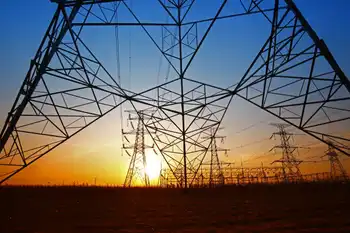Smart grids Could Give South Africa Reliable Electricity
By Pretoria News
High Voltage Maintenance Training Online
Our customized live online or in‑person group training can be delivered to your staff at your location.

- Live Online
- 12 hours Instructor-led
- Group Training Available
Smart-grid technology — which uses sensors, digital communications and software to manage an electricity network — has been hailed as a possible remedy to curb electricity losses resulting from inefficient electricity transmission and distribution networks.
Eskom — which, with various municipalities, is a licensed distributor of electricity — has counted improving network reliability among its future priorities.
Previous estimates were that unplanned power cuts mainly occurred due to assets not being well maintained, as well as due to the lack of capacity to perform preventative maintenance.
SA faces an electricity distribution infrastructure maintenance and refurbishment backlog the cost of which was recently estimated at more than R30bn.
A smart grid was especially important for SA over the next few years before new-generation plants came online, Mr Mginqi said. "This places strain on the network as the power load is juggled against growing demand.
Frost & Sullivan energy programme manager Cornelis van der Waal said on Friday that smart technology could encourage change in consumer behaviour and lead to the spread of electricity consumption throughout the day instead of the traditional early evening peak.
Mr Mginqi said smart-grid capability would allow utilities to better predict and respond to changes in supply and demand patterns, and more intelligently control the load across the network.
"The smart grid resulted in overall efficiency across the electricity network by better deploying resources and balancing load, and promoting healthier management of equipment across generation, transmission, distribution and customer operations," he said.
Smart grids were rapidly penetrating the electricity market, led by companies in North America and Western Europe, Mr Mgindi said. However, the uptake had slowed due to the global economic downturn, which had seen electricity utilities curbing expenditure.
Mr Mginqi said the primary stumbling block to smart-grid technology deployment in SA was a lack of appreciation of the value of the technology, "as well as when and how to start implementing a way forward towards unlocking such value. Financial challenges, regulation incentives, and the ability to couple new smart-grid technologies with legacy infrastructure, provide additional challenges to rolling out the smart grid."
Smart-grid capability would allow utilities to better predict and respond to changes in supply and demand patterns











